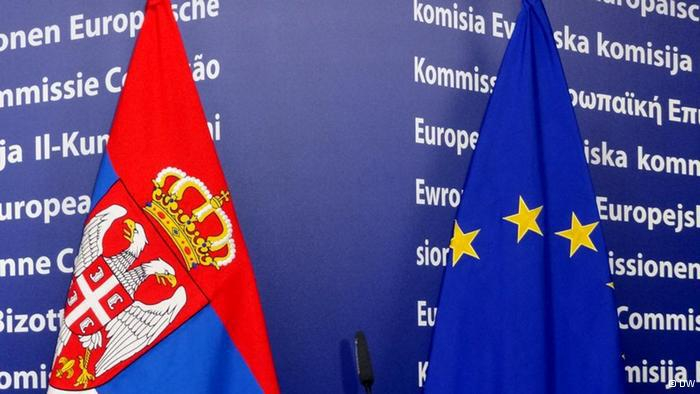
Practical information
Themes and regions
Related centers and programs
This is a private event.
Learn more about our corporate support packages
After Berlin and Austria in 2014 and 2015 respectively, France will assume in mid-June 2016 the organisation of the next Western Balkan Summit. The purpose of this event, which is part of the Berlin-Vienna-Paris-Rome-London process, will be to maintain the European impetus in the region and ensure the respect of the commitments taken on at the past summits. Eventually the challenge will be to sustain the political and economic transition, which starts to falter in most of the countries in the region, and to support them in their European trajectory. The relations Serbia pursues with the European Union as well as with its South-eastern European neighbours play here a very important role. They impact, in particular, on the regional dynamics of European integration.
After a decade of frictions and upheavals, the relations between Serbia and the European Union have constantly improved in recent years. Their rapprochement, marked by the opening of accession negotiations in 2014, has accelerated, for internal reasons of course, but also in consideration of the external dimension the European integration of Serbia seems to have for the whole region. Its relations with Kosovo, Montenegro, Bosnia-Herzegovina, Albania and Croatia, indeed, are determinant for regional security. No wonder then that Serbia is increasingly regarded as a pivotal country in the region in European integration matters.
The aim of this conference is to assess the position of Serbia in its regional space in the light of European integration and to identify the expectations, which can reasonably be addressed to and by its government in regional cooperation and European integration matters, a few month before the Paris Summit on the Western Balkans.
Related Subjects
Other events

From Ambition to Action: Exploring Technological Partnerships with India
The 16th EU-India Summit, held on January 27th in New Delhi with European leaders António Costa, Ursula von der Leyen, and Prime Minister Narendra Modi, marks a significant milestone in deepening EU-India relations. At the same time, official bilateral visits from EU member states are on the rise, including that of the French President, who visited India in February to participate in the Artificial Intelligence Summit. As India asserts its technological ambitions and seeks to reduce its dependence on China, Europe is stepping up its efforts to diversify its strategic partnerships.

The Enlargement of the European Union: A Strategic Choice? France, the Western Balkans and the EU in an Uncertain Geopolitical Context
Russia’s war against Ukraine has brought the enlargement of the European Union back to the centre of European strategic debates. In this context, the Western Balkans have regained heightened visibility in discussions on the continent’s security, at a time when the international environment is marked by a growing number of destabilising factors.






